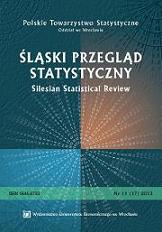Demographic trends and personal income tax in italy in the context of raising children
Demographic trends and personal income tax in italy in the context of raising children
Author(s): Achille Vernizzi, Gian Carlo BlangiardoSubject(s): Economy
Published by: Wydawnictwo Uniwersytetu Ekonomicznego we Wrocławiu
Keywords: Age Distribution; Births; Deaths; Microeconomic Data; Personal Income Tax; Progressive Principle; Redistributive Effect; Re-ranking Indexes
Summary/Abstract: Since the 1970s, Italians have experienced considerable demographic changes: a sharp fall in the birth rate with a contemporaneous ageing of the population, and more residents aged 65 years and over than under the age of 20. These changes are due not only to a change in cultural attitude: they depend also on the economic difficulties Italian families face when increasing their family size. At the same time, we have to observe that in Italy, the personal tax system does not recognise, as it should, the social and economic efforts families undertake in their role of bringing up children and increasing human capital. This is verified by looking at both the implicit costs recognised by the personal tax system, and the violations of three axioms, which according to Kakwani and Lambert [1998], a fair tax system should respect. The Italian tax system recognises rather low implicit costs to income earners when they have to take care of children: moreover these implicit costs are an inverse function of taxable income and become irrelevant for middle level incomes. With reference to Kakwani and Lambert’s axioms, the overwhelming majority of violations are made against families with children.
Journal: Śląski Przegląd Statystyczny
- Issue Year: 17/2013
- Issue No: 11
- Page Range: 49-67
- Page Count: 19
- Language: English

